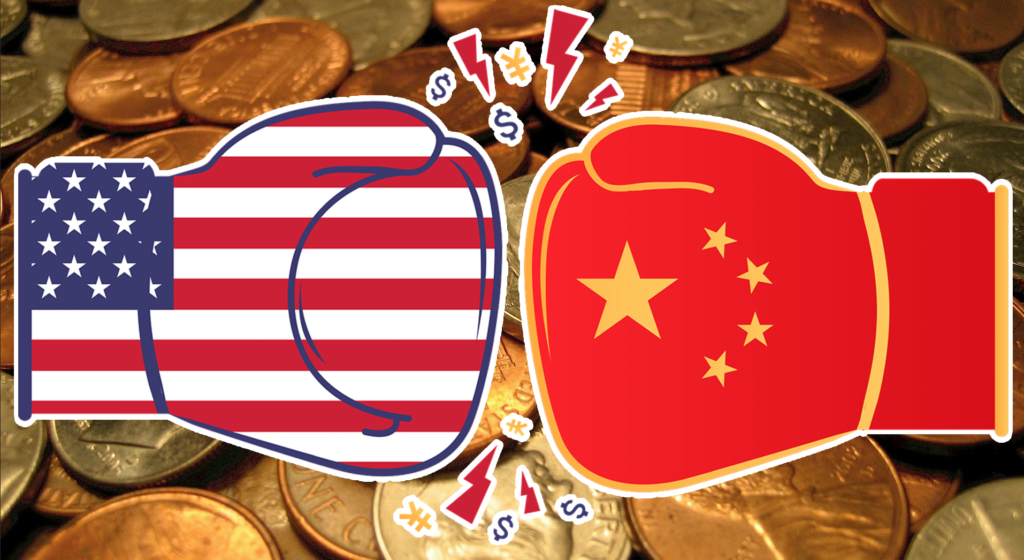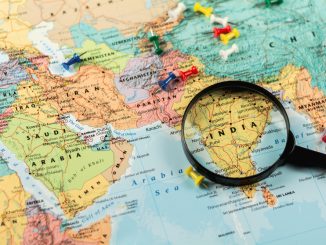
While the world grappled with the uncertainty of dealing with an unprecedented pandemic, great power politics between the US and China did not cease. There is little love lost between the two countries; tit-for-tat tariff impositions, and the power competition, if it continues to grow, could foreshadow a global pandemonium.
Irrespective of its failure in ‘flattening the curve’, the US refrained from cooperating with China. It will be difficult for the US in a post-COVID world to abandon its global leadership; however, the competition for power will always be present – and growing.
Great powers have always sought influence and exclusive economic control. Before World War I, the economic markets were interdependent. This interdependence did not preclude the European countries from laying claim to territories not already spoken for, which led to preemptive imperialism. The competition between the European imperialists gradually grew, which sparked tensions in the continent.
After World War I, Japan and Germany made efforts to gain economic privilege over other nations, provoking World War II. During the Cold War, the exclusive spheres of influence in Europe and Northeast Asia and superpower competition between the United States and the Soviet Union were contributing factors in a conflict that lasted for about forty-five years. However, the desire for exclusive economic control or its fear was not the prime cause, but a principal constituent in instigating catastrophic wars.
It is obvious that the yearning for economic privilege and influence has contributed to precipitating global wars despite economic interdependence. It drives the great power competition between states, and is a vicious cycle difficult to stop.
Contemporary great power competition is dominated by economic and political spheres. However, alongside the continued politicking, strategic maneuvering for power and dominance is underway. The strategic significance of Southeast Asian states and China’s substantial influence in the region has compelled the US to revamp its foreign policy in the past decade. China, on the other hand, has strictly opposed US interference and growing partnership with regional states, many of whom lay claim to disputed territory with China.
Even as the world is encompassed by the pandemic, China and the US are conducting naval exercises in the South China Sea. In mid-April 2020, two US carriers, the Theodore Roosevelt and the Ronald Reagan, were docked at the port because of the COVID-19 cases among the crew. A Chinese aircraft carrier and five warships reportedly sailed into Taiwan waters and through the Miyako strait. This was seen as a threat to Taiwan’s security because of its territorial dispute with China and the latter’s continuous threats of military advancement. In response to China, the US navy and air force did a runway show of strength.
More recently there is the clash over Hong Kong’s ongoing anti-government protests and Trump’s continuous meddling. Trump’s vow to end the special status accorded by the US to Hong Kong if China were to impose new national security laws on the city, started a new chapter of the same quest for regional and global hegemony.
Given the proliferating great power competition which can be mutually destructive, what can both countries do to avoid an escalation of tensions and ensure a mutually beneficial market? Unlike the extreme views of conservatives and liberals in both countries, neither conflict nor cooperation is inevitable. Neither country can neglect the fact that their policies and extravagant economies affect the international economy. What can be done for the world system to accommodate not one but two great powers?
On the China side, it should liberalise its domestic market for foreign as well as national firms and reduce non-tariff barriers on western firms. It should ensure openness and free trade of capital goods across the borders, thereby diminishing the risk of manipulating firms for economic incentives by the government. Secondly, it should build economic consortia with western firms for joint partnerships in areas where it is increasing its influence. For instance, openness and free movement in the South China Sea for western and national firms will be a pragmatic approach to reducing tensions in the region. It should also encourage consortia in regions linked to the Belt and Road Initiative (BRI) project.
On the US side, the Trump administration should encourage China for joint cooperation, and thereby, it will have to participate in the Chinese market. It should not make the mistake of opposing progressive initiatives as President Obama did with the Asia Infrastructure Investment Bank. The administration should eschew protectionism and the protectionist ‘America first’ policy (when necessary) to uplift the liberal international market in practice. Finally, the US needs to restructure its domestic markets to welcome global market change.
Nothing is inevitable in international politics. If the US refrains from protectionism and China embraces openness, we may see a new global order emerging.




Why should china include US in BRI?
For mutual cooperation. They must reach an accord to empower openness in economic party.
China should be the power of the world
No one can completely be the power of the world. There will always be competition
Difficult to stop US under Trump. He won’t abandon protectionism
The 2020 presidential election might change the course
Exactly but US – and the whole Western world to a certain extent – is fearful that China will control future technologies, most importantly cloud computing and AI. However, China very much depends on US capabilities on many aspects.
No doubt China is paving its way in AI and emerging technology. But according to the latest numbers, the US is spending more than any other country in the whole world. Also, its allies – Taiwan, Japan and Korea – are emerging as new technological powers in that region. But yes the technological threat is real.
Nothing is inevitable except in world politics. There’s always room.
Room for cooperation is always there
It’s difficult but not impossible. I agree
“Nothing is inevitable in world politics”. Both countries can reach a Detente like in cold war
Also there’s a technological tussle going on between the two countries
No doubt. It is a major constituent but the economic and strategic threat is proliferating